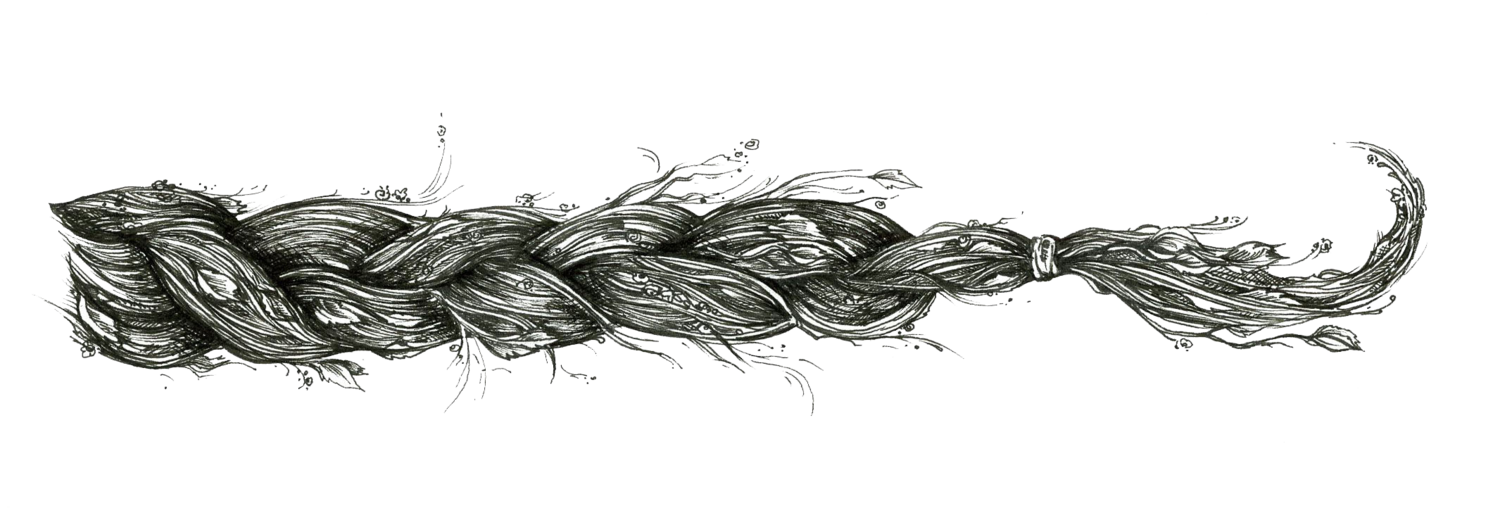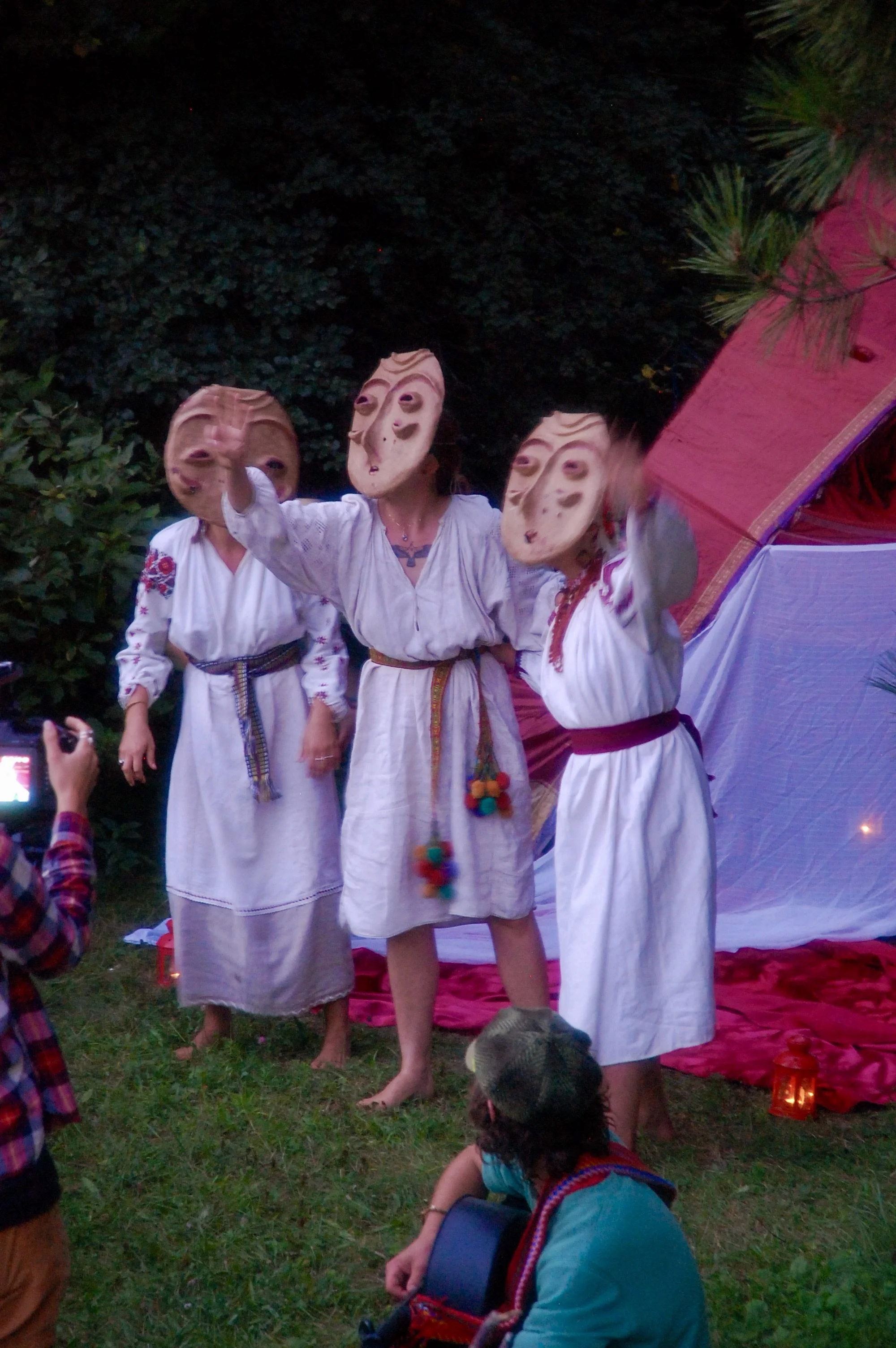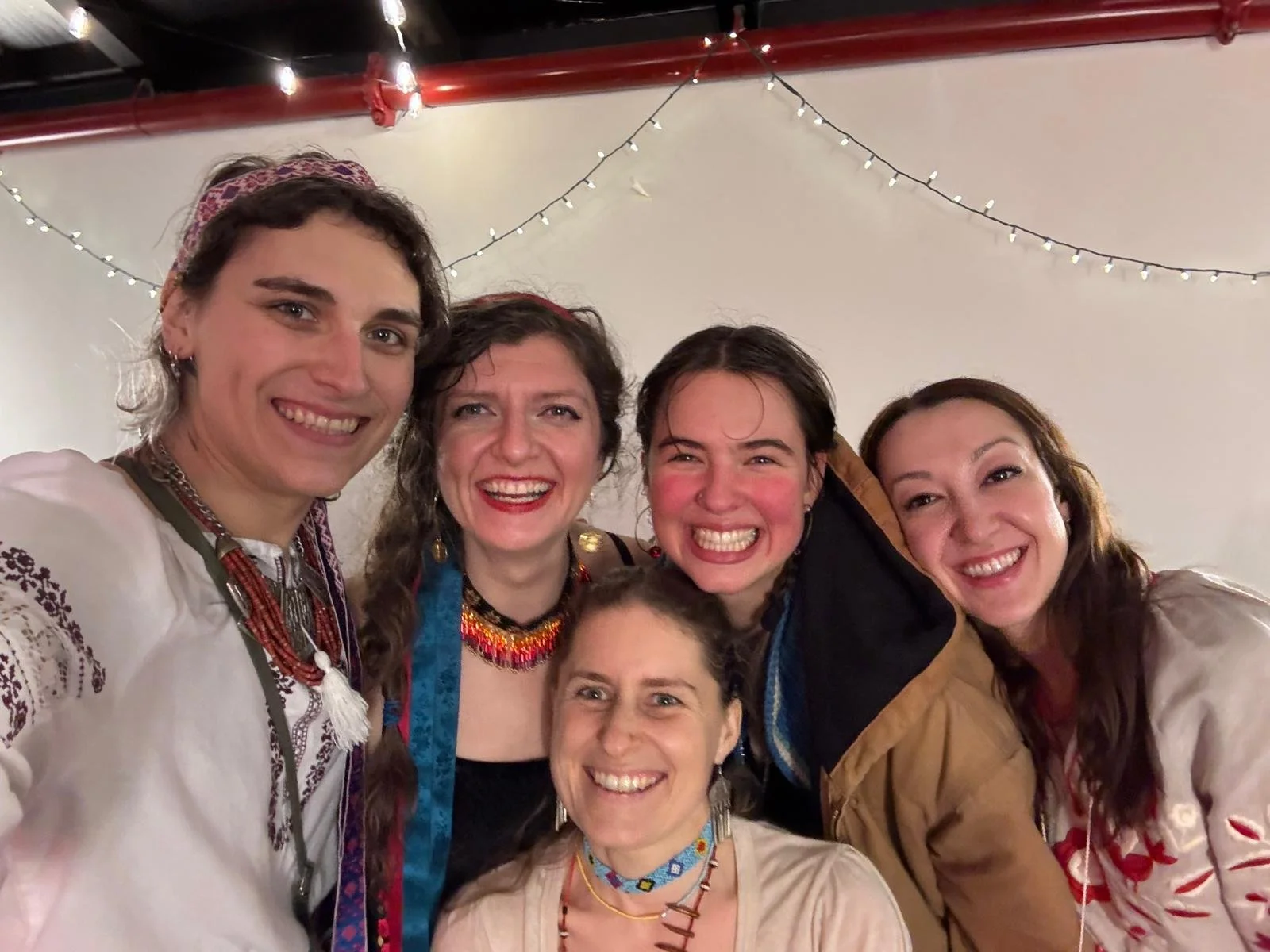Kosa turns 15!
This year Kosa is celebrating its 15 year anniversary as a community endeavour, from the humble beginnings of our activities as Kosa Kolektiv, to running Folk Camp, and evolving into a not-for-profit arts organisation (Folk Camp Canada), running ongoing community programs and connecting a vast network of artists and community members working in various folk arts rooted in Ukrainian and related traditions.
Kosa Kolektiv began in 2010 with a group of 4 women with Ukrainian heritage based out of Toronto, who met together with the purpose of exploring tradition and culture creatively, through community action, and collective art-making. They crafted, sang songs, cooked, tended gardens, foraged, brewed tea, and put on workshops and gatherings in the spirit of traditional Ukrainian folk village life, reviving and popularising ancient folk customs among members of the Ukrainian diaspora, and broader Toronto community. In a short time, the group connected with many other musicians, folk artists, community activists, and passionate people interested in similar ideas and actions, with whom they joined in an urban folk revitalization (Lemon Bucket Orkestra, Balfolk Toronto, Fedora Upside Down collective). Many of these original collaborators became good friends and partners in community projects. Many also lead their own organisations and musical projects, as well as continue to be part of the Kosa community, and involved in Folk Camp.
Folk Camp was started by the Kosa Kolektiv community in 2015. The summer camp was a natural extension of the collective's work in the community reviving folk traditions and engaging people in artistic and creative practices that promote healthy, vibrant, joyful living and collective healing. When the annual week-long summer camp was founded, Folk Camp Canada was incorporated as a not-for-profit, and the group began operating under the name Folk Camp. Since some Kosa activities continued to go on outside of the scope of the camp, namely Ukrainian focused singing, the community group has interchangeably been known as Folk Camp and Kosa ever since.
In 2025 we will be stepping into a new name as an organisation: Kosa Folk Arts, to better denote our origins as Kosa Kolektiv, and to pay homage to the Ukrainian folk arts focus of our activities. We’ve also made a new logo that marries the symbol of Folk Camp (the folk flower/ compass) with the symbol of the braid (Kosa). After many changes and variations, there remains an underlying current of a Kosa ethos that continues to run under, and through the community, binding us all, rooted and ever growing. It’s an amazing and powerful thing, carried forward by so many people!
In the coming weeks and months we’ll be sharing more about our origins and our many iterations.
Our name holds a lot of symbolism, and is a good place to start!
Kosa means braid in Ukrainian.
Young women traditionally wore long braids, or kosy, before marriage and Kosa Kolektiv originally chose the name as a symbol of youthful, feminine vitality, but also to denote cultural fusion— the braiding of old and new. They wrote: “We seek to re-learn forgotten songs, rituals and stories, and to bring them to life in a relevant way, within our urban communities”. Women’s multi-part singing was always at the core of what Kosa Kolektiv did together, and we found a lot of depth and connection there that was ancient, powerful, and life-giving. This singing tradition and many ancient Ukrainian folk arts practices continue to be at the core of what Kosa does, and supports. We value beauty-making and the care and tending in the process of braiding, that strengthens all the different parts.
Kosa the braid, has always been an important symbol for our group and continues to carry meaning for us as we move into the future.
The word “kosa” is also a homonym, meaning “scythe” in Ukrainian (and in many Slavic languages), and since scything is a traditional landbased practice deeply embedded in East European culture, it is also a fitting association for our group. Scything is an old skill, but one that is also undergoing a revival as its importance in regenerative land tending is rediscovered and appreciated. Taking up the scythe helps us live lightly on the earth, embracing a peaceful gentle approach to work, & rediscovering the wisdom and knowledge of our ancestors’ ways. It also highlights a key focus of the Kosa ethos— land, lineage, & connection.
And then there is Koza— the Goat! Sometimes people mix up our name and call us the Koza collective! ;)
Koza means goat in Ukrainian (and other Slavic languages), and in folklore, is the trickster, and symbol of fertility. All across Europe the goat is associated with the new year and fertility rites, and a goat figure is part of the new year’s caroling/mumming customs. “Where the goat goes, there the rye grows”, as in the old saying. Our Kosa caroling troupe brought back the ancient custom of leading the “koza” around during the winter holiday celebrations in Toronto, and our masked goat is often associated with our group. We embrace the association, and see the koza as an apt representation of the folkloric customs, seasonal celebrations, folk theatre & ritual, mystery & playfulness that are another key aspect of our group’s ethos.
We weave these different meanings together, like braided bread, creating space for culture and community to rise and grow together.
Born out of the roots of Kosa Kolektiv, and grown into a community arts organisation, with many strands—here we are!
~Sept 2025


















